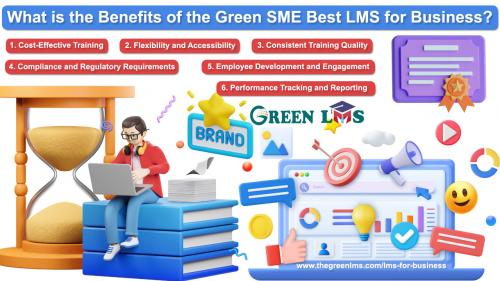How Evolving Health & Safety Protocols Have Impacted Corporate Training

The recent global health crisis
brought unprecedented challenges, and its ripple effects are still felt across
various sectors, including corporate training. Evolving health and safety
regulations have had a transformative impact on how companies design, deliver,
and monitor learning initiatives. Let's delve into the key areas of change and
the strategic shifts required to maintain effective training programs.
The
Rise of Remote and Hybrid Training
Social distancing and limitations on
gathering sizes accelerated a trend that was already gaining momentum: remote
training. Learning Management Systems (LMS) became indispensable tools for
delivering course content, assessments, and interactive elements virtually.
Hybrid approaches, combining in-person and online learning, also gained
popularity to cater to different learning styles and safety restrictions.
Implications
of Remote/Hybrid Models
- Accessibility: Remote learning removes
geographical barriers, enabling access to training for employees across
multiple locations or working from home.
- Flexibility: On-demand courses and flexible
schedules empower employees to fit learning into their busy days or
different time zones.
- Challenges: Maintaining engagement and
hands-on training can be harder remotely, requiring creative instructional
design.
Increased
Focus on Health & Safety Content
Unsurprisingly, training on updated
health protocols took center stage. This may have included courses on:
- Disease prevention and hygiene
practices within the workplace.
- Proper usage of protective
equipment (where applicable).
- Mental health and stress
management resources during uncertain times.
- Revised workplace policies and
regulations.
Adapting
Hands-On Training
Industries that rely heavily on
hands-on training faced unique challenges. Strategies for adaptation include:
- Simulation and VR Technologies: Simulations and virtual
reality experiences can partially replicate hands-on learning for
industries ranging from healthcare to manufacturing.
- Smaller Class Sizes: Reduced capacity within
training facilities allows for greater social distancing.
- Strict Hygiene Protocols: Thorough cleaning of
equipment, mandatory PPE, and health screenings before attendance became
the norm.
The
Shift Towards Compliance-Driven Learning
While compliance training has always
been a component of corporate learning, evolving regulations amplified its significance.
This means:
- More Frequent Updates: Companies need to ensure
training reflects the latest local, regional, and industry-specific health
guidelines.
- LMS for Documentation: An LMS becomes vital for
tracking who has completed required training updates and generating
compliance reports.
Long-Term
Implications
It's likely that some of the
adaptations sparked by evolving health concerns will leave a lasting impact on
corporate learning:
- Blended Learning Is Here to
Stay: Even as in-person training
gradually resumes, the convenience and effectiveness of hybrid models
ensure their continued use.
- Technology Investment: Companies that invested in
e-learning infrastructure and virtual training tools will enjoy a
long-term competitive advantage.
- Emphasis on Adaptability: Training departments need
built-in agility to swiftly respond to changing safety regulations and
employee needs.
In
Conclusion
While
health and safety protocols have created challenges, they've also been a
catalyst for innovation within corporate training. Companies that embrace
technology, prioritize flexibility, and make compliance-driven learning a
cornerstone of their strategy will not only navigate this evolving landscape
but emerge stronger and more resilient for the future. Green LMS offers a wide
range of talent management tools integrated with its larger human capital
management suite. Its various applications, including Talent Development Software, LMS
for colleges, LMS for Schools, LMS for Corporate, and LMS for Business, provide the
resources to support a smooth merger process, aiding in employee training,
communication, and fostering a collaborative culture essential for a successful
integration.
Post Your Ad Here

Comments